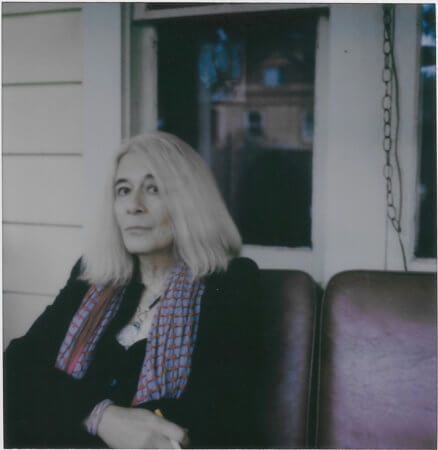Review of “I Heard Her Call My Name: A Memoir of Transition,” by Lucy Sante
Review by Michael Quinn
A million years ago, my then-boyfriend and I were in Las Vegas for a wedding. One of the casinos had a photo booth that took pictures of couples and produced stickers that showed what your child would look like. You could choose the sex.
I’ll never forget the face of that little girl we made. She was hideous.
Naturally, gay couples can’t produce children on their own. But technology showed us a glimpse of what that fantasy future could look like. And sometimes a glimpse is all it takes to change your life forever.
In 2021, a 67-year-old writer, feeling “too old and too bald,” downloaded FaceApp onto his phone. He thought its gender swap feature might be good for a laugh. But the joke’s on him. That’s not just a woman in the picture. That’s who he really is.
“I Heard Her Call My Name,” by Lucy Sante, traces the renowned writer’s journey from Luc to Lucy. Luc dances between recognizing and denying the woman he has always been “like a character in a science fiction novel, trapped between dimensions.”
Luc’s core identity is outsider. He grows up the only child in a Catholic working-class family that shuttles between Belgium and the United States, finally settling in suburban New Jersey. His mother spoils Luc as a baby, then resents him as he starts to sprout into manhood. First she snoops, then she slaps. Sante writes of their relationship, “We hated each other so intensely it was almost like love.”
While attending Columbia University in the 1970s, Luc finds his bohemian tribe. He hangs out in places like the Mudd Club and rubs shoulders with artists like Patti Smith. Working at the Strand and later at The New York Review of Books, he discovers himself as a writer and starts to build a notable career.
Throughout his life, Luc represses his “lifelong desire to be a woman.” He avoids the few trans people he meets, afraid of what they have in common. Despite being “terrible” in bed with “a poisonous tendency to turn my spouses into my mother,” he marries, divorces, marries again. He raises a son. Yet a sense of urgency brought on by the pandemic finally prompts him to come out as transgender—on his partner Mimi’s birthday. (He later makes sense of this as an unconscious betrayal.) Reflecting on their failed relationship, Sante confesses, “It wasn’t so much that I had betrayed Mimi’s trust, but that I had never honestly earned it.”
Trans stories often get bogged down in a lot of academic jargon—gender theory and the like—as well as politics. Well-intentioned authors dutifully regurgitate the familiar talking points that can make a conservative’s blood pressures rise. Sante is too lively and original a writer for that. “There is nothing of the politician about me,” Lucy admits. She doesn’t care about “representation”—she just wants to exist.
Sante includes black-and-white photographs showing Lucy’s evolution over time. At the end, a selfie shows her closer to the present day, with shoulder-length white hair and a big smile. She looks not only happy but liberated. (This makes sense when you consider that she occasionally regards Luc not as a part of who she is but as “my sad-sack ex-husband.”) I’m sure I have that photo sticker of my little girl somewhere—a “what if” that could never be.









